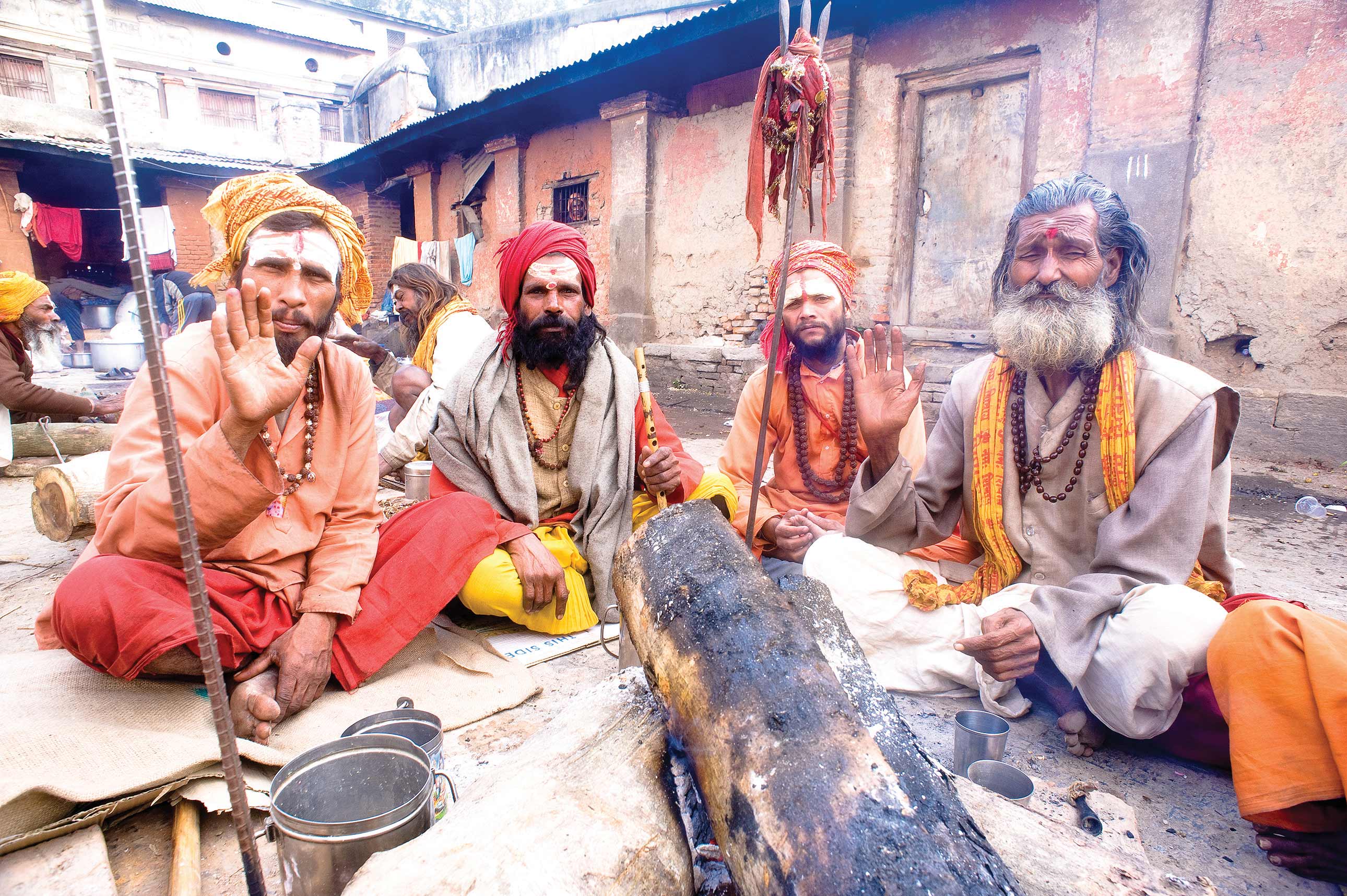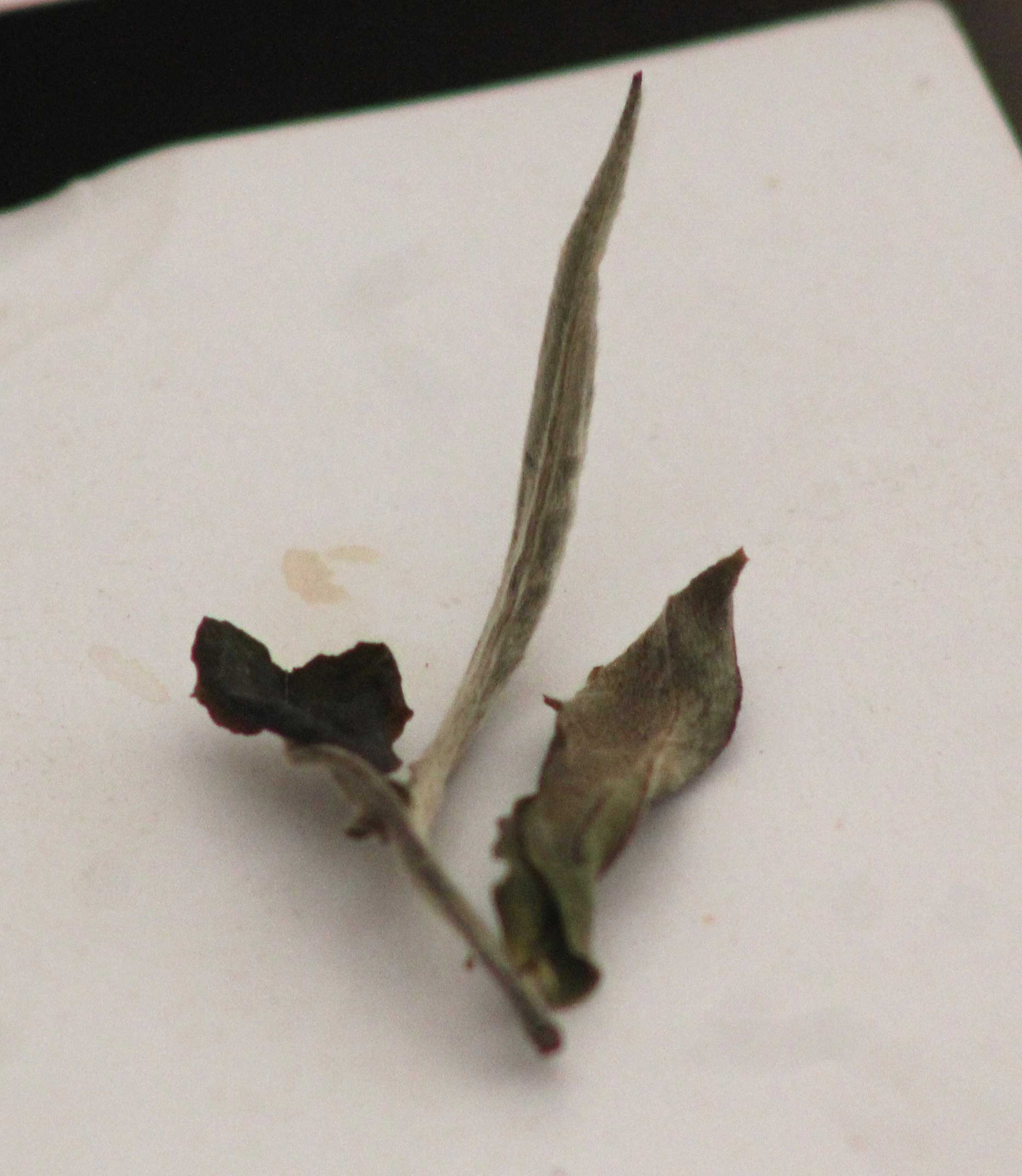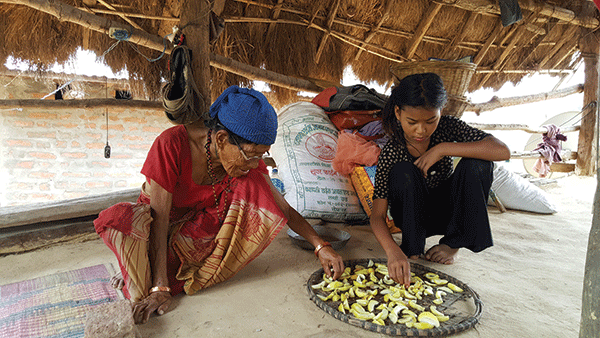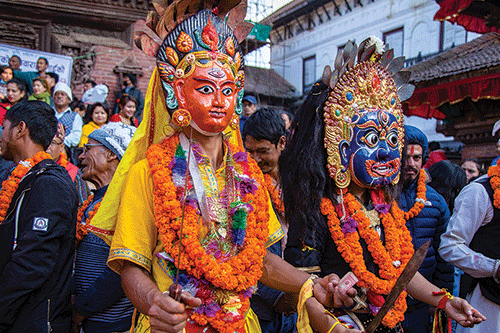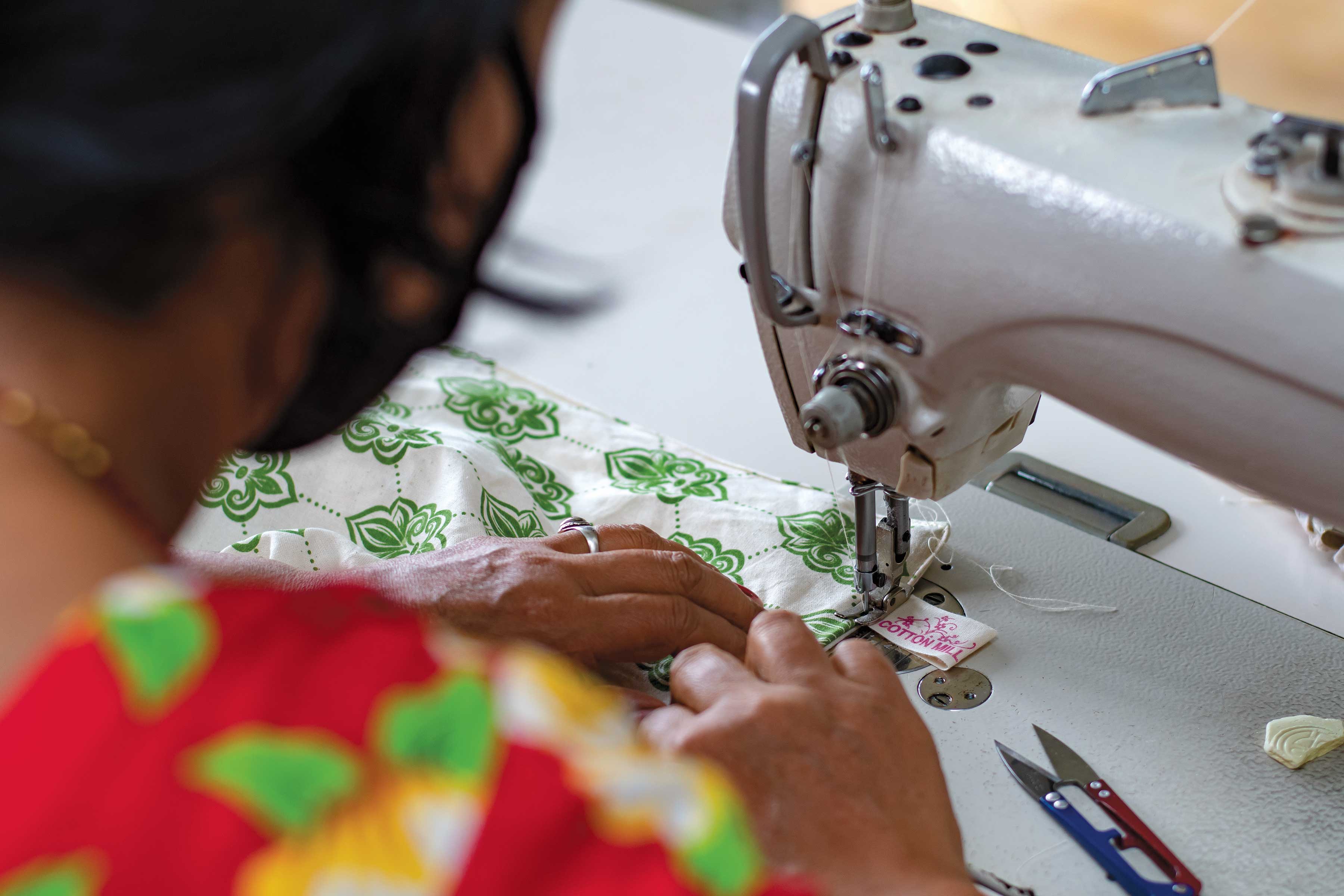The beauty of culture lies in its palpability to change its value with time. A newlywed fasts for the first time and finds new meaning in the traditional festival of Teej.
Every year as a little kid I saw my mother dress up in her prettiest red saree and all the regalia that came with it. She looked exceptionally beautiful around teej, rather she made sure she did. She would then fast for an entire day without even taking a sip of water. It is a game I used to say to myself. A challenge to go without drinking for twenty-four hours. All women in the family used to gather at our grandmother’s place. The night before they would sit together and eat one last time before the teej fast would ritually start. We kids, careless and happy we are all spending the night together on this festival, would scream, play and run around.
As I grew up, the festival of teej gained a new meaning, the night long singing and dancing, the adornments, and the rituals were not just amusements but they had a very specific purpose. Aunts would tease me and the girls that we should start fasting already if we wanted a perfect husband. Shiva would grant one to us. They are too young now, my grandmother would interrupt. Their mother-in-law will make them fast anyway. Let them be untroubled while they are in their mother’s house. I would giggle outwards but feel awkward inside. How would Shiva help me find a good husband? Does he know what would make a perfect husband for me, when I do not know that myself? What if he gets confused and picks someone he likes but I do not?
Years later, as a grown woman living on my own and away from my family for years, teej had become a childhood memory. My mother would some time mention about teej being round the corner on our phone conversations. I would dread her not eating or drinking for an entire day. She would say that if you believe in the fast you do not even feel the need to. It would not convince me but I would rather not argue.
Since I did not fast to make Shiva happy, the job of finding a perfect husband had to be undertook myself. You see, if I didn’t trust the Lord himself to do it I could not trust anyone else too. Maybe Shiva was pleased already or I was good at looking, but I found the perfect one I wanted to marry. I was a months old bride surrounded by a new family and teej was approaching. The women I would meet would ask me if I had fasted before. I would smile and shake my head, “no”. They would enquire if my mother did and be satisfied with an affirmative answer. “This would be your first one, then”, they would say. Older ones would mention how it was much harder in their time but now the rules are a little relaxed. Collectively they would discuss the long queues at Pashupati and the hours they spent waiting to gain entry the year before, and the year before and so on. Queues, hunger and thirst would scare me a little but I did not want to show it.
A week before teej the darkhani parties started. Aunts and relatives invite women to their house to eat, dance and celebrate the coming of teej. They were the best part of the festival. Extended families getting together and having fun is exactly my idea of festivities.
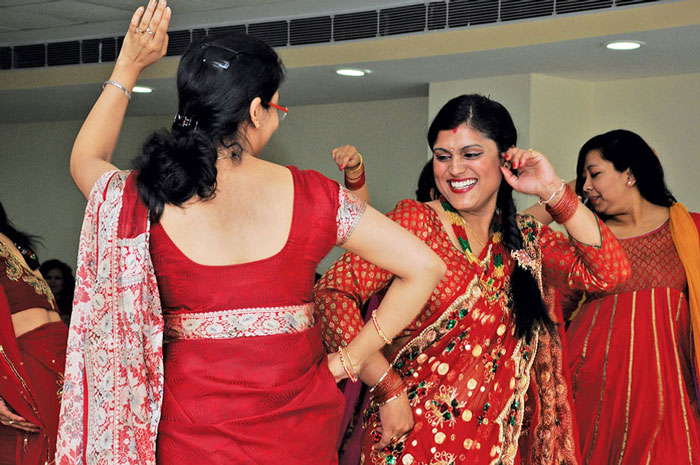 On the day of Teej, I dressed up in my red wedding saree, half excited, half anxious.
On the day of Teej, I dressed up in my red wedding saree, half excited, half anxious.
Are you seriously going to fast all day, my husband kept questioning and went on to tease me about going hungry to ensure his long life and good health. Now I feel guilty about eating and I am hungry he complained. Cousins back home, younger sisters who were next in line to get married within a year – the ones I ran amuck with on this day decades ago as our aunts and mothers did the puja – texted me. Each one of them, asking me how I was holding up without eating or drinking? Is it as difficult as it looked? Do you really not feel like eating like our mothers used to say?
A part of me was not even listening to the chatter. As I stepped out of our home and went from one temple to another, the atmosphere outside was electric. All the women I saw were dressed up and on their way to temples talking animatedly and laughing. There were mandalis or groups on the corner of roads singing and groups of women were dancing to their tunes. It was a true red party on the streets. The aesthetics of the festival were so arousing that you could not care for anything else much either. I forgot all about the fast as the excitement in the air caught up with me. “I think teej is the only time when there are more women than men on the city streets. Seems oddly subversive in its own way”, I mentioned enthusiastically to my sister.
As I waited in the thankfully-not-so-long queue at Pashupati, paused a moment to look around. There were so many women in groups walking around in their best clothes, buying little nothings, dancing in the middle of the streets in a manner which was refreshingly lighthearted. It was their day! I realized something then; maybe, this is not about the husbands at all. Yes, it says so in the books and stories but that does not have to be the truth all the time. Times have changed, they say and a woman like me can leave their house whenever I want and go out with my friends without my husband tailing me. But have times really changed for all women? Perhaps these are the occasions when women from all quarters of society can freely get out together and have an amazing time in the name of ritual. It made sense to me to see the excitement on the faces around me. They are not just fasting, they are celebrating.
The sun had already set when we reached back home. Timle garo bhaye hola (you might have found it difficult), my mother-in-law told me while giving me some boiled potatoes and water to have. The whole day is enough you do not have to fast the night too. I had those and went to my room beaming. My husband sat there reading. “So you successfully fasted for your husband, who does not even believe in these things” he teased again.
“Who said it was for you” I smiled knowingly and went to bed.


